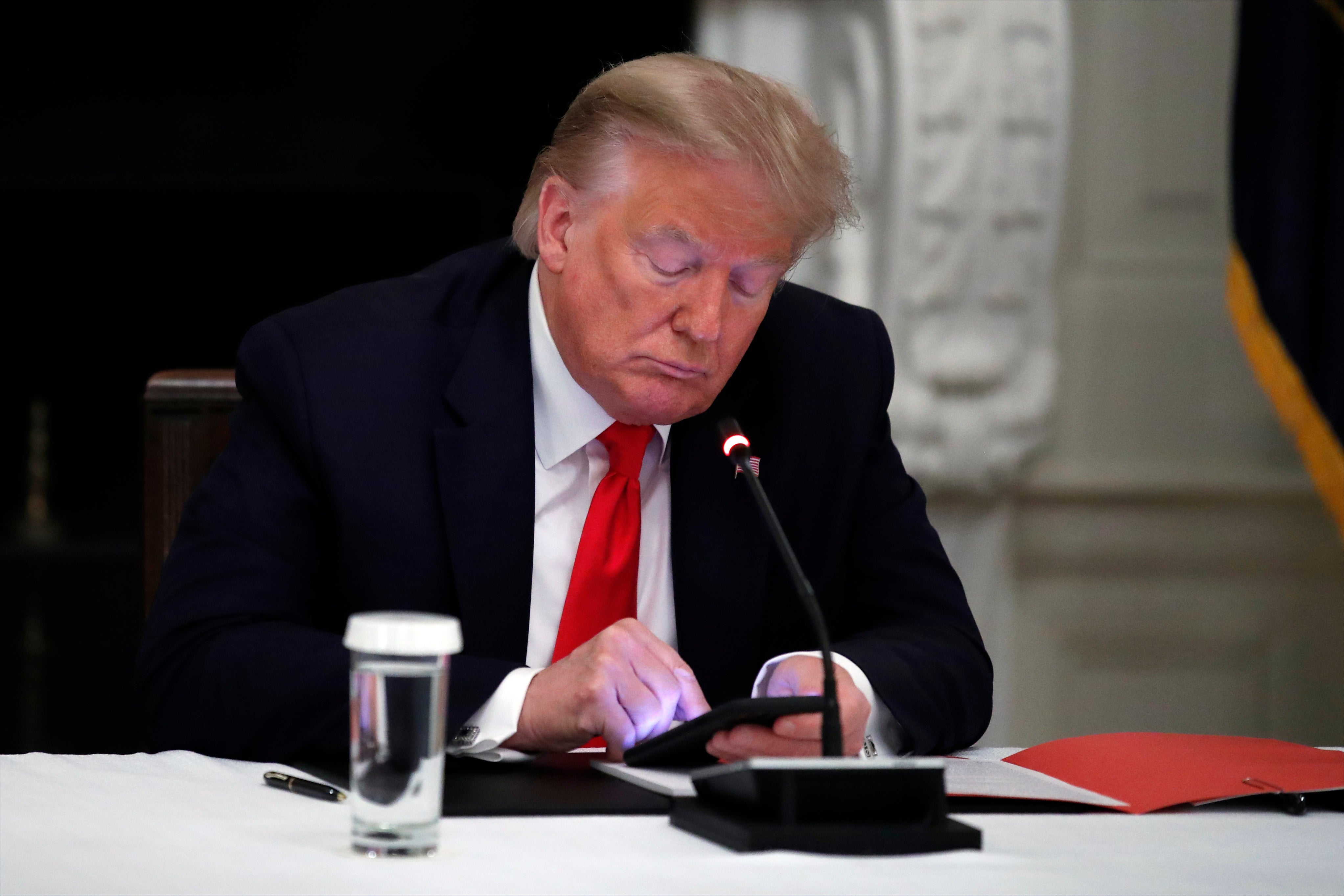Why Trump’s Truth Social account is a legal landmine for him
Trump is notoriously incapable of refraining from issuing blistering attacks on anyone he sees as an enemy


Your support helps us to tell the story
From reproductive rights to climate change to Big Tech, The Independent is on the ground when the story is developing. Whether it's investigating the financials of Elon Musk's pro-Trump PAC or producing our latest documentary, 'The A Word', which shines a light on the American women fighting for reproductive rights, we know how important it is to parse out the facts from the messaging.
At such a critical moment in US history, we need reporters on the ground. Your donation allows us to keep sending journalists to speak to both sides of the story.
The Independent is trusted by Americans across the entire political spectrum. And unlike many other quality news outlets, we choose not to lock Americans out of our reporting and analysis with paywalls. We believe quality journalism should be available to everyone, paid for by those who can afford it.
Your support makes all the difference.Donald Trump has a problem.
He’s currently facing no fewer than three court proceedings in both civil and criminal courtrooms in his former home state of New York, and he can’t seem to keep his mouth shut about any of them.
In multiple instances, the twice-impeached ex-president’s conduct has caught the eye of the judges charged with overseeing cases against him, most recently in a New York City federal courtroom, where on Wednesday District Judge Lewis Kaplan issued a stern warning to Trump’s attorney, Joe Tacopina.
The veteran jurist told Tacopina, who is representing Trump in a civil rape lawsuit brought by writer E Jean Carroll, that the former chief executive could have opened himself up to “a new source of potential liability” with inflammatory posts about the case on his Truth Social platform.
Specifically, Trump called the case a “scam” and made reference to alleged DNA evidence which isn’t going to be part of the trial.
Judge Kaplan had previously warned both Trump’s and Carroll’s lawyers – and witnesses who may testify in the rape and defamation lawsuit – against making statements that could incite violence or civil unrest.
Given the ex-president’s history of inciting unrest, it’s unlikely that the warning was meant for the former Elle advice columnist.
But Trump has risked incurring the ire of another New York judge, Supreme Court Justice Juan Merchan.
Merchan is the judge who oversaw the conviction of Trump’s longtime chief financial officer, Allen Weisselberg, in a criminal tax fraud trial last year. He’s also the judge who will preside over the ex-president’s criminal trial on more than 30 felony counts of falsifying business records.
At the ex-president’s arraignment earlier this month, Merchan issued a similar warning to the ex-president, who sat largely silent as charges against him were read out.
“Please refrain from making statements that are likely to incite violence or civil unrest,” he said.
While the former president is a free man and will, in theory, remain free unless and until he is convicted of a crime by a jury of his peers, the warnings from those two judges represent the most pressing and immediate threat to his liberty.
That’s because Trump is notoriously incapable of refraining from issuing blistering attacks on anyone he sees as an enemy. It’s partly how he ended up facing a defamation lawsuit from Carroll, who has accused him of raping her in a Bergdorf-Goodman dressing room in the mid-1990s.
He’s also attacked multiple judges, including Merchan, as “Trump-hating” jurists and accused them of bias against him without evidence. Similarly, he’s shown no qualms about attacking the prosecutors investigating him. The one who has thus far obtained an indictment against him, Manhattan District Attorney Alvin Bragg, has received numerous death threats as a result.
The former president, who is currently campaigning for voters to return him to the White House in next year’s election, has suggested that any effort to restrict his speech could violate the US Constitution.
But a judge overseeing a criminal or civil trial has vast powers to ensure that the proceedings before them remain fair. That’s why Judge Kaplan used a rarely employed authority to keep the jury in Carroll’s case anonymous to all but court personnel, telling them that no one would ever learn their names, “God willing”.
The point of such an order – and his warning to Trump’s counsel – is to keep Trump, or anyone else, from tainting the jury by way of threats or intimidation, or influencing them with public statements about the case.
But Trump, who is notoriously averse to being told what to do, isn’t likely to heed the judge’s admonition. And in the future, that warning could turn into a formal gag order if it is determined that he is disrespecting the court’s wishes.
Violating a court order can carry significant consequences, up to and including jail.
And if any judge hearing a case against him decides he has violated a gag order, that judge could – in theory – lock Trump up.
It would be a drastic remedy, but given Trump’s penchant for talking himself into trouble, it remains a distinct possibility that the thing that could end the former president’s freedom is his own big mouth.
Join our commenting forum
Join thought-provoking conversations, follow other Independent readers and see their replies
Comments